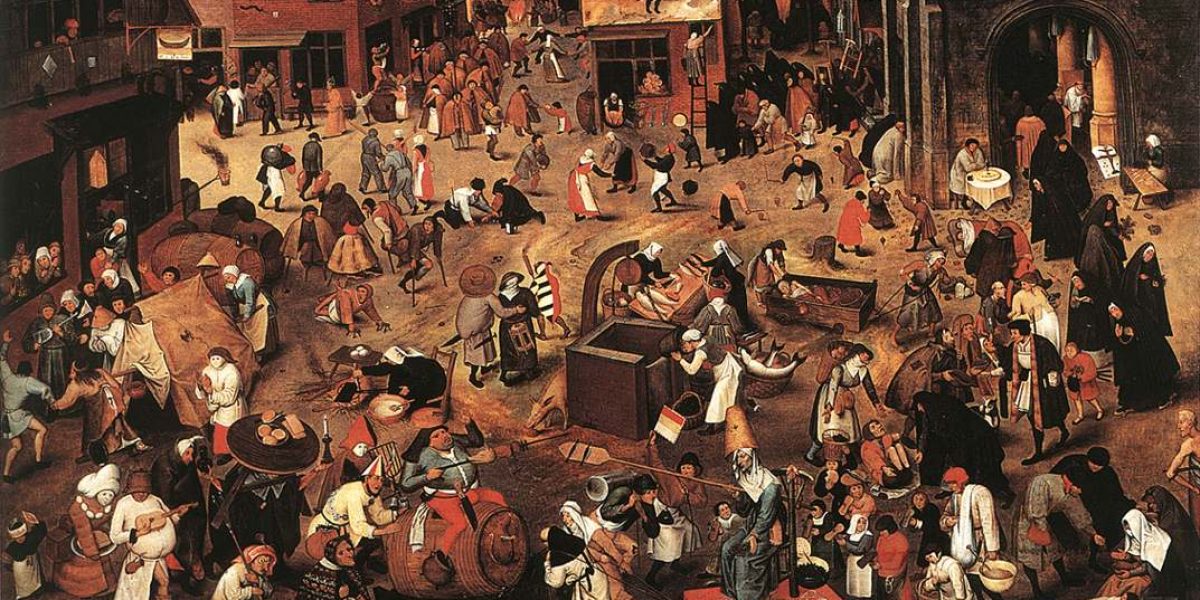Homo Medievalis: Culture and the Individual in the Middle Ages

Faculty:
Course Schedule:
Spring 2024 | Mon Wed 4:10 – 5:30 PM Berlin (UTC + 2)
Professor: Victor Apryschenko
Semester: Spring 2024 (January 29 – May 21)
Subject: HIST
Distribution Area: Social Studies
Core module II (BCB): Medieval Literatures and Cultures
Cross-Listing(s): no
Course Level: 100
Number of Bard Credits: 4
Course Title: Homo Medievalis: Culture and the Individual in the Middle Ages
Max Enrollment: 22
Schedule: Mon Wed 4:10 – 5:30 PM Berlin (UTC + 2)
Language of Instruction: Russian
Course Description:
This course will survey Medieval European history from Emperor Constantine’s conversion to Christianity in 310 to the beginning of the European Reformation. Its first focus will be on the creativity of the populations newly arrived in Europe in adapting the heritage of the Roman Empire. The course will also explore the role of economic change in transforming European societies after the onset of the new millennium. The development of Christianity and its impact on the intellectual exploration and everyday engagement with the social, political, natural, and domestic environment will also be addressed. Topics for the discussion will include the development of kingship; the evolution of states; material and literary courtly cultures, economic transformations, and religious movements and sects. Special attention will be paid to the history of ideas which originated in the Middle Ages, such as obeyance to the king; the veneration of the pope; state subjugation techniques; the difference between a subject and a citizen, and the rise of the citizenry model. Finally, we will study the rise of individualism between 1200 and 1400 and the cultural and political roots of the individual as a concept. We will discuss how the 15th century Europeans found themselves among the ruins of their old certitudes: the Earth was no longer the center of the universe, their search for the divine was made more complicated by the Reformation and its aftermath, while Christopher Columbus discovered another world with strange animals and human beings, which differed from the familiar fauna or the beasts described in the Bible. Other monumental change on our agenda will be the Black Death epidemics of the mid-14th century, which drastically reduced the population of Europe. The assigned medieval sources will include heroic epics, biographies of kings and saints, letters and chronicles, social satires, and material artifacts.
Guidelines for the Statement of Purpose:
Craft a reflective statement of purpose explaining your interest in the Smolny Beyond Borders online course. The file should be saved with your name and course title as the filename and uploaded accordingly. Your statement’s clarity and substance will significantly influence our selection. Convey your motivations and aspirations for this course succinctly but thoroughly. Kindly write your statement in the course’s Language of Instruction.
Application Portal Instructions:
1) Use the Latin alphabet for all entries on the portal, including your name. If the Language of Instruction is Russian, you may use Cyrillic only within the Statement of Purpose file, and the title of the file should still be in English.
2) Refrain from using email addresses associated with Russian or Belarusian educational institutions.
3) While completing the “Required Information” section, ensure you fill in the “Province” field for your address.
4) Provide an address outside Russia or Belarus in both the “Required Information” and “Geographic Location Confirmation” sections of the “Online Course Application”. This ensures we can send your transcript.
5) You must press the “Sign” button twice during the application.
6) If you hold a bachelor’s degree, select “4th+” in the “Academic Year (online)” section.
7) Applicants either unaffiliated or affiliated with educational institutions in Russia and Belarus should list ‘Smolny Beyond Borders’ as their educational institution.
8) In the student ID section, enter ‘SBB’.
9) Consider drafting your motivation letter ahead of time. Save it as a separate file with this format: LastName_FirstName_CourseTitle for a smoother application process.
When completing your profile, please select “Smolny Beyond Borders” under the Home Institution section if you are not affiliated with an OSUN partner.
